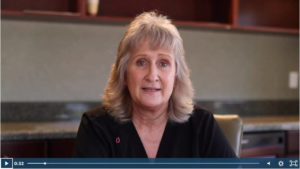Share:
Asante is on the alert for monkeypox
Monkeypox is now declared a global public health emergency of international concern by the World Health Organization. Although Asante has yet to see a patient with monkeypox, 141 cases have been reported in Oregon.
Monkeypox is a contagious disease caused by monkeypox virus. The virus is spread mostly through close, prolonged contact with someone who has monkeypox symptoms, including rash and lesions.
Most transmission of monkeypox happens through skin-to-skin contact with the rash of someone who has monkeypox, including through intimate physical contact and sex. It can also be transmitted through kissing, hugging, massaging and cuddling.

Less commonly, it can spread through touching materials used by a person with monkeypox, including soiled clothing, towels and bedding. It is possible to spread through prolonged face-to-face contact through respiratory droplets but is not spread through casual conversations or walking by someone with monkeypox.
Clinical recognition
The rash may be located on or near the genitals or anus and could be on other areas like the hands, feet, chest, face or mouth. Other symptoms can include: fever, chills, swollen lymph nodes, muscle aches, headache and respiratory symptoms such as sore throat, nasal congestion or cough.
Monkeypox symptoms usually start within three weeks of exposure to the virus (incubation period is three to 17 days) and can be spread from the time symptoms start until the rash has healed, meaning all scabs have fallen off and a fresh layer of skin has formed. The illness typically lasts two to four weeks.
Patients suspected of being infected with monkeypox should be isolated (airborne and contact precautions per policy ) and samples collected for testing. Providers can obtain viral transport media (VTM) and swab for PCR testing from Asante laboratories along with the specifics.
) and samples collected for testing. Providers can obtain viral transport media (VTM) and swab for PCR testing from Asante laboratories along with the specifics.
There is some good news regarding treatment and prevention. Because monkeypox and smallpox viruses are genetically similar, antiviral drugs (TPOXX) and vaccines (JYNNEOS and ACAM2000) developed to protect against smallpox viruses may be used against monkeypox infections.
Asante providers can order TPOXX (tecovirimat) for patients who are immunocompromised or otherwise more likely to develop severe illness.
for patients who are immunocompromised or otherwise more likely to develop severe illness.
Learn more:
How to protect yourself
Avoid close, skin-to-skin contact with people who have a rash that looks like monkeypox.
- Do not touch the rash or scabs of a person with monkeypox.
- Do not kiss, hug, cuddle or have sex with someone with monkeypox.
Avoid contact with objects and materials that a person with monkeypox has used.
- Do not share eating utensils or cups with a person with monkeypox.
- Do not handle or touch the bedding, towels or clothing of a person with monkeypox.
Wash your hands often.
- Use soap and water or an alcohol-based hand sanitizer, especially before eating or touching your face and after you use the bathroom.
If you have a question, please contact the author or relevant department directly.



